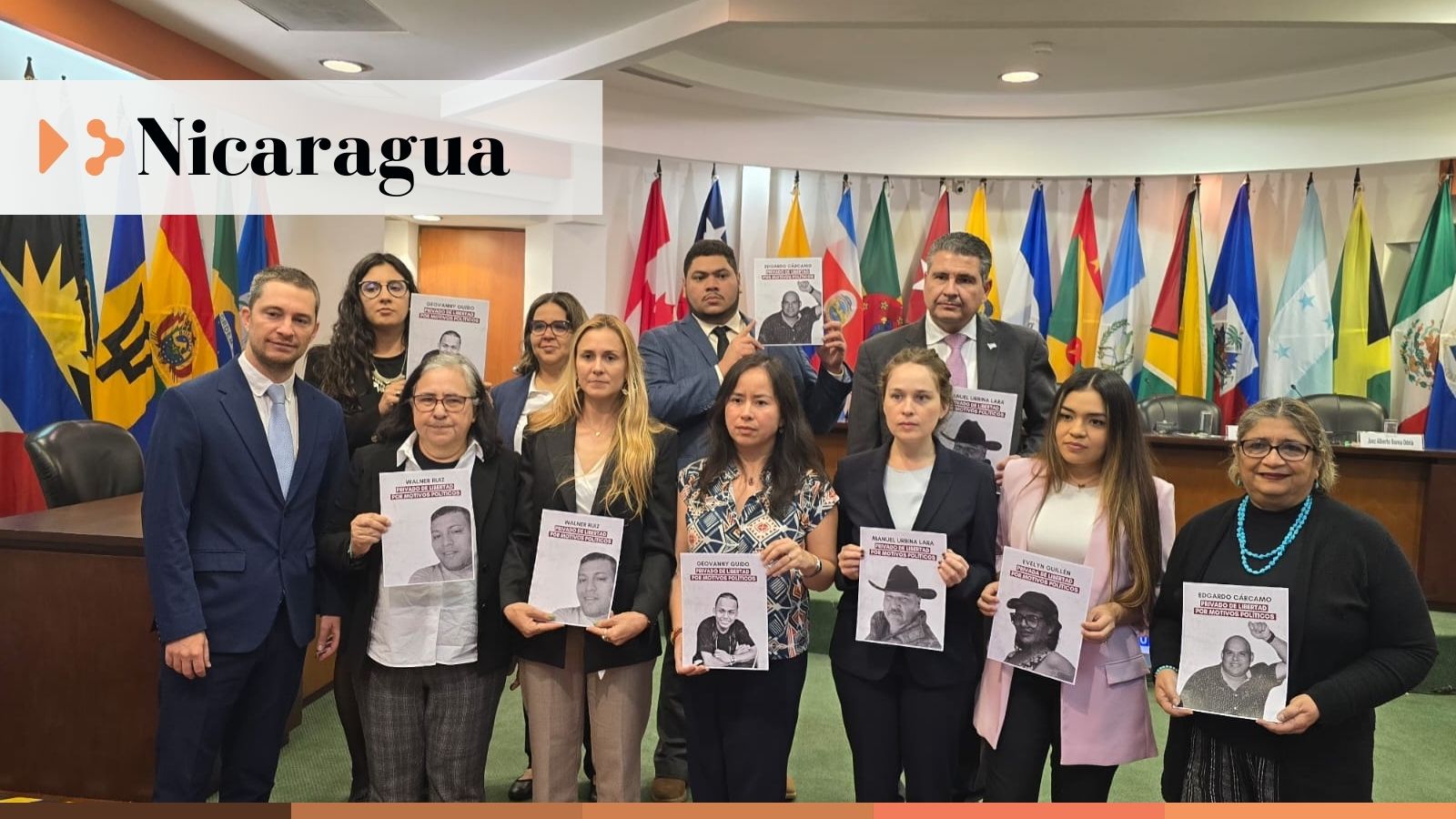






In a hearing at the Inter-American Court of Human Rights, human rights organizations denounced the continued repression and persecution by the Nicaraguan State against beneficiaries of provisional measures and their families, some of whom are imprisoned in Nicaraguan jails and many of whom have been banished from the country and arbitrarily deprived of their nationality.
The Centro por la Justicia y el Derecho Internacional (CEJIL), the Instituto sobre Raza, Igualdad y Derechos Humanos, the International Federation for Human Rights (FIDH), the Colectivo de Derechos Humanos Nicaragua Nunca Más and the Unidad de Defensa Jurídica (UDJ), presented to the Court the serious and urgent risk to which 97 people, out of the 116 beneficiaries of the Court’s measures, continue to be subjected.
Serious human rights violations
During the hearing, it became evident that the State of Nicaragua has systematically failed to comply with the resolutions of the Court, which order the immediate release of arbitrarily detained people and the protection of their fundamental rights. To date, 88 of the beneficiaries have been banished and stripped of their nationality, while 7 remain in prison and 1 is still in a situation of enforced disappearance.
The organizations denounced that the banishment and loss of nationality have been used as mechanisms of reprisal by the Nicaraguan government against the political opposition. Likewise, the State has confiscated property and bank accounts, annulled identity records and denied access to official documents, leaving victims in a legal and social limbo. In addition, senior citizens have been stripped of their pensions.
A context of systematic repression
Repression in Nicaragua not only continues but has been intensified. Recent constitutional and legislative reforms have consolidated an authoritarian and police state that suppresses fundamental rights and legalizes persecution against the opposition. Among the most alarming measures are the concentration of power in the figure of the co-presidents, the establishment of voluntary police forces and the elimination of the prohibition of torture, which leaves political prisoners completely defenseless.
The organizations also warned about the extension of a policy of repression beyond Nicaraguan borders, with attempts to criminalize exiled persons through false accusations and the possible use of international mechanisms such as INTERPOL to persecute opponents abroad.
This situation was ratified by the Inter-American Commission on Human Rights and by the Group of Human Rights Experts on Nicaragua (GHREN).
Urgent appeal to the Court and to the international community
Given this scenario, the organizations urged the Court to maintain the provisional measures in force in favor of the beneficiaries and their families, and requested that it order the State of Nicaragua to:
Finally, a call was made to the international community and the member states of the Organization of American States (OAS) to adopt measures to pressure the Nicaraguan government to comply with its international human rights obligations.
Help us continue this critical and urgent work with a donation!
DONATE NOW